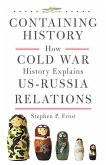Based on extensive new material, much of it unpublished, by and about Sartre from archives across Europe, this book explores Sartre's lifelong relationship with Italy, its culture, society and, above all, its intellectual left. Starting with his dawning awareness of politics as foremost a moral responsibility during his first tourist trips to Naples in the 1930s and the poverty he encountered there, Italy, Jean-Paul Sartre, and Europe's Cold War examines the relationships Sartre forged with a number of Italian liberal, leftist and communist intellectuals after the war. Immediately drawing him into debates over the ethical crisis that they held responsible for fascism, the war, and now, Europe's Cold War, several of them became lifelong friends of his, as well as collaborators in a number of efforts to address that crisis in Italy and, by the late 1950s, in Eastern Europe. Reconstructing the networks they established through cultural organisations they founded themselves, Nancy Jachec traces how Sartre and his ideas were brought into the Soviet Union, Poland and Czechoslovakia in pursuit of a democratic socialism. Using private correspondence, press reports, memoirs, embassy dispatches, government committee minutes, and surveillance and intelligence reports from Eastern and Western sources, the book reconstructs Sartre's activities and the impact they had in a way that Sartre did not foresee. While his many discussions with his Italian peers on the theme of political morality led him to support the New Left in spite of its organisational problems, in Poland and Czechoslovakia his work was taken in a very different direction, where intellectuals would go on to assume real political responsibility.
Hinweis: Dieser Artikel kann nur an eine deutsche Lieferadresse ausgeliefert werden.
Hinweis: Dieser Artikel kann nur an eine deutsche Lieferadresse ausgeliefert werden.








